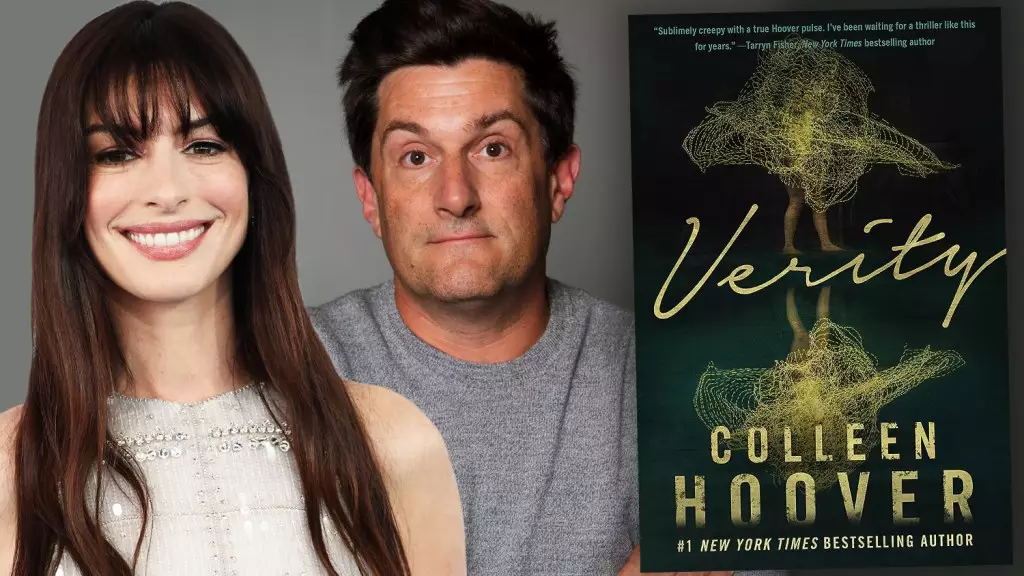Colleen Hoover has undoubtedly become a titan of contemporary literature, particularly in the realms of romance and psychological thrillers. Her novels, often infused with emotional depth and complex characters, resonate with a vast audience, which explains why adaptations of her works are much-anticipated events. Following the successful release of “It Ends With Us,” which featured star power like Blake Lively and Justin Baldoni, audience expectations for “Verity” are soaring. But will this adaptation truly do justice to the source material?
The central narrative of “Verity” revolves around a struggling writer who is thrust into a web of deception and emotional turmoil after taking a job to complete a series of novels for a comatose author. This premise is both gripping and layered, making it a fertile ground for cinematic exploration. However, one can’t help but wonder if the filmmakers will succeed in translating the book’s complexities onto the big screen.
Star Power or Star Burden?
The casting choices for “Verity” have generated excitement, particularly the selection of Anne Hathaway in the titular role. Hathaway is an actress of remarkable range, capable of navigating the nuances required for a character as multifaceted as Verity Crawford. Dakota Johnson, playing Lowen Ashleigh, and Josh Hartnett, as Verity’s husband Jeremy, complete what many perceive to be a “stacked” cast.
However, the star power can almost feel like a double-edged sword. Audiences inevitably bring their preconceived notions of these actors into their viewing experience. The challenge lies in their ability to shed their public personas and fully embrace their characters. If the chemistry among the actors falters, or if they don’t embody the essence of Hoover’s characters, the film could devolve into a forgettable adaptation, potentially enraging book enthusiasts who have built an intimate connection with the narrative.
The Talent Behind the Camera
While actors often receive the lion’s share of attention in film adaptations, the director and writers play equally crucial roles in shaping the final product. Michael Showalter, known for works such as “The Big Sick,” has been entrusted with directing “Verity.” His past successes suggest a strong visual and narrative sensibility, but there are still open questions.
The screenplay has gone through multiple drafts from different writers, including Nick Antosca, who brings a touch of horror and suspense to the mix. The variations in scriptwriting can be both a strength and a weakness. On the one hand, this collaborative effort can foster fresh ideas. On the other, it may lead to inconsistencies that could undermine the story’s integrity. For those who hold the original text dear, any deviation could feel like a betrayal, which amplifies the stakes for all involved in the production.
A Complex Internal Narrative
One of the standout aspects of “Verity” is its exploration of psychological complexities and moral ambiguity. Lowen’s ethical dilemmas and emotional struggles are what make Hoover’s writing resonate deeply with readers. Filmmakers face the daunting task of adequately representing this internal chatter while engaging a wider audience that may not be familiar with literary subtleties.
Translating these intricate themes into visual storytelling is challenging. As audiences, we often crave action and momentum, but “Verity” demands an introspective approach that reflects Lowen’s emotional journey. It remains to be seen whether the film adaptation can balance thrilling elements with a thoughtful narrative, a feat that is often easier said than done.
The Shadow of Expectations
With each adaptation of Hoover’s novels, the looming shadow of heightened expectations follows. After the mixed reception of many book-to-film translations in recent years, and bolstered by the so-so reviews of “It Ends With Us,” the pressure on “Verity” is palpable. Despite its release being over three years away, the mounting anticipation may nestle it in a catch-22: the more we yearn for it to be good, the tougher the criticism will be if it isn’t.
Ultimately, the success of “Verity” could hinge on its ability to carve out its own identity while honoring the source material. If the production can tread this fine line, it may not just resonate with fans of the book but possibly reach new audiences as well. Whether this adaptation can break the mold in a landscape crowded with often formulaic interpretations remains to be seen.

Leave a Reply